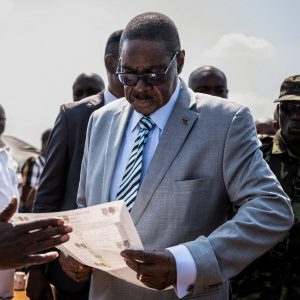
By Tariromunashe M. Kaiyo
Malawi’s recent election is being hailed as a democratic success a people’s victory for voting out a non-performing president.
But this praise misses the real story.
The country has simply replaced one elderly leader with another, electing 85-year-old Professor Peter Mutharika. It’s a change of faces, not of systems.
Democracy is supposed to be the will of the people.
As Democratic Progressive Party (DPP) spokesperson Shadric Namalomba put it, “If the will of the people is to be led by a seasoned father figure, then that is the ultimate expression of democracy.”
Yet this statement exposes a deep flaw. African democracies often appear vibrant on the surface with multiple parties and regular elections but they rarely deliver real change or new ideas.
This is worrying in a country where 75% of the population is under 45. Young people are ruled by leaders twice, even three times, their age. This creates a dangerous generational gap. For Malawi’s youth, electing an 85-year-old leader is not just a political event it’s a warning about their future.
Young people feel trapped in a system that values age over urgency. Issues like unemployment, digital innovation, and climate change are sidelined. Many feel unseen and unheard, governed by an elite that speaks a different language one of power, not progress.
Since the fall of Hastings Banda, Malawian democracy has perfected one thing: changing presidents.
Everything else has stalled.
Development remains a distant dream, crippled by corruption, vote-buying, and electoral fraud. The recent arrests of Malawi Electoral Commission officials tell that story clearly.
For the political elite, elections are not about service they’re about survival.
The ballot is no longer a tool for accountability; it’s a trophy to be captured. African cultures often value age and wisdom, but that respect can clash with the urgent need for innovation and economic reform in a fast-changing world.
This tension is not unique to Malawi it runs across the continent.
The international community will likely celebrate this election as peaceful and credible. But beneath the calm lies an unresolved truth: Africa’s democracy remains contested.
Ballots are counted in polling stations, yes but also in the hearts of millions waiting for democracy to finally deliver.
True democracy must go beyond ceremony. It should blend the wisdom of the old with the energy of the young. It should turn elections from routine exercises into engines of accountability and transformation. Only then will democracy in Africa move from promise to power.
Until that day, the paradox of the ballot change without progress will continue to define, and diminish, the democratic experience for millions.








